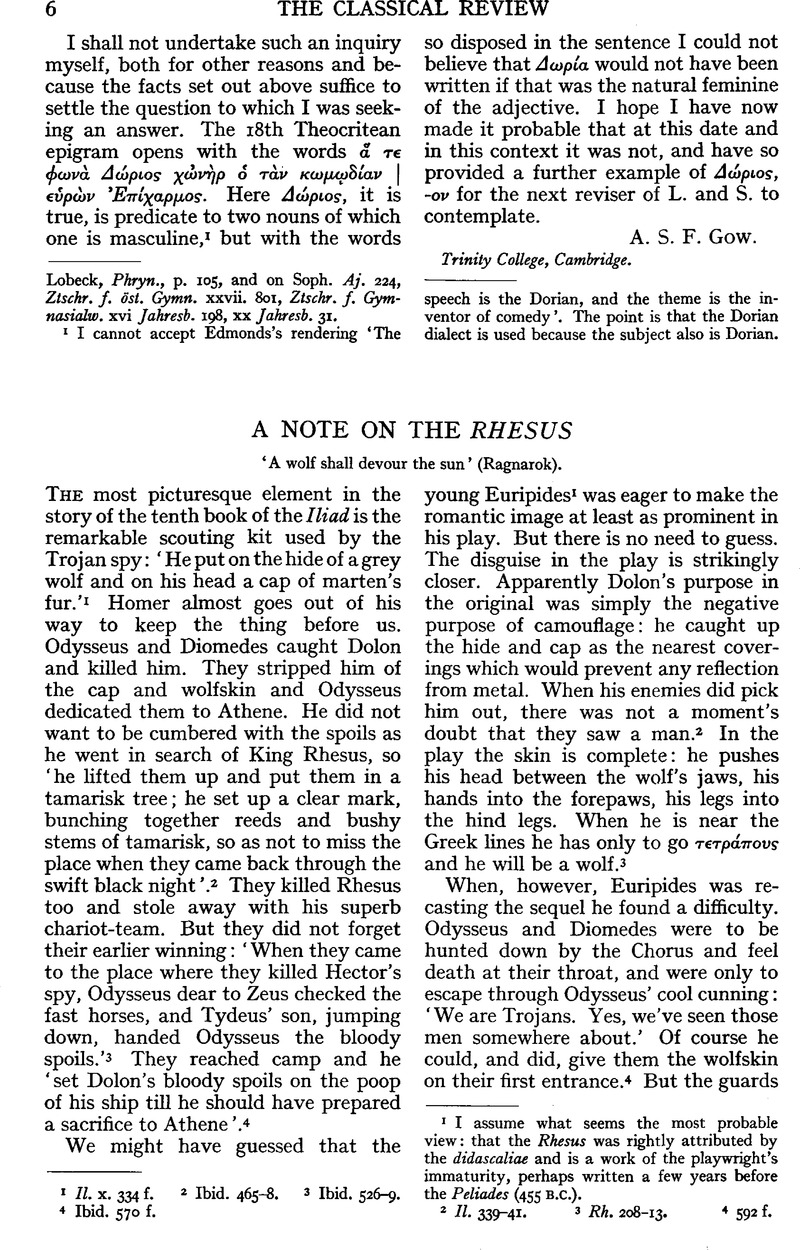Article contents
Note on the Rhesus
Published online by Cambridge University Press: 27 October 2009
Abstract

- Type
- Review Article
- Information
- Copyright
- Copyright © The Classical Association 1945
References
page 6 note 1 Il. x. 334 f.
page 6 note 2 Ibid. 465–8.
page 6 note 3 Ibid. 526–9.
page 6 note 4 Ibid. 570 f.
page 6 note 1 I assume what seems the most probable view: that the Rhesus was rightly attributed by the didascaliae and is a work of the playwright's immaturity, perhaps written a few years before the Peliades (455 B.C.).
page 6 note 2 Il. 339–41.
page 6 note 3 Rh. 208–13.
page 6 note 4 592 f.
page 7 note 1 Rh. 139: Ag. 4; Rh. 790 f.: Ag. 1389 f.; possibly Rh. 289: Ag. 562—![]() occurs only three times in Tragedy.
occurs only three times in Tragedy.
page 7 note 2 29.
page 7 note 3 224.
page 7 note 4 535.
page 7 note 5 543, S62.
page 7 note 1 The phrase suggests that somehow it was more than a dream.
page 7 note 2 Il. viii. 497–541.Google Scholar
page 8 note 1 Rh. 56–66.
page 8 note 2 224–7.
page 8 note 3 Pind. P. i. 39; schol. ad Ar. Eq. 1240; it might naturally occur in a play the hero of which was king of Mysia.
page 8 note 4 Il. iv. 101.
page 8 note 5 For a full discussion of the matter see Jebb on Soph. El. 6 f.
page 8 note 1 Rh. 573.
page 8 note 2 521.
page 8 note 3 573.
page 8 note 4 688.
page 8 note 5 Cf. Little Red Riding-Hood.
page 8 note 6 985–6.
- 1
- Cited by


